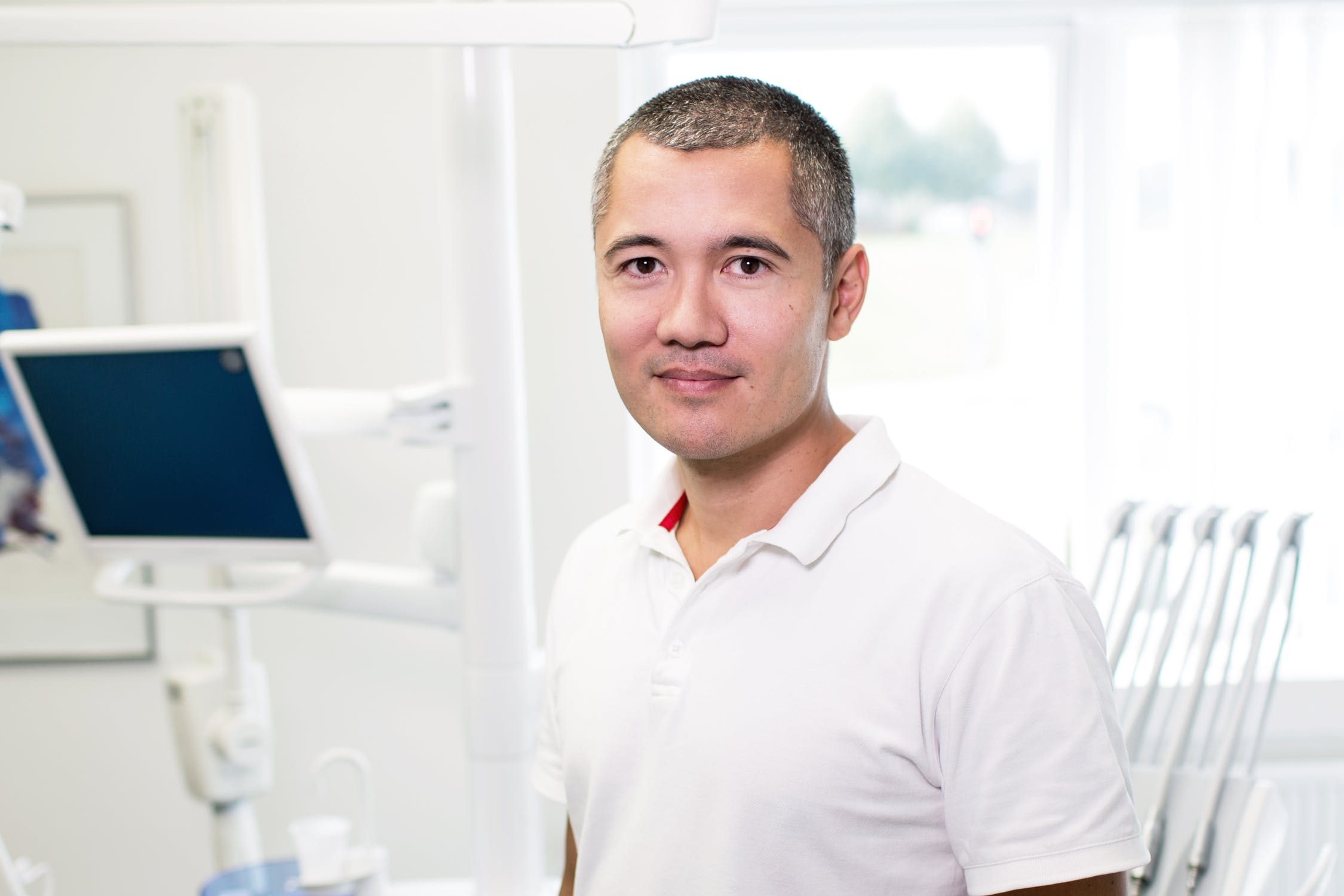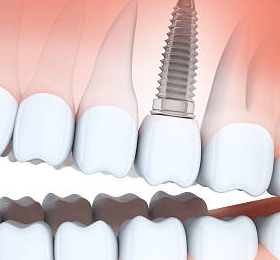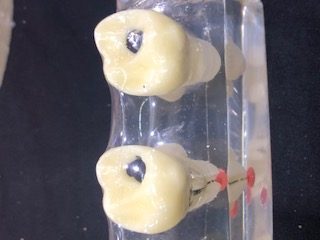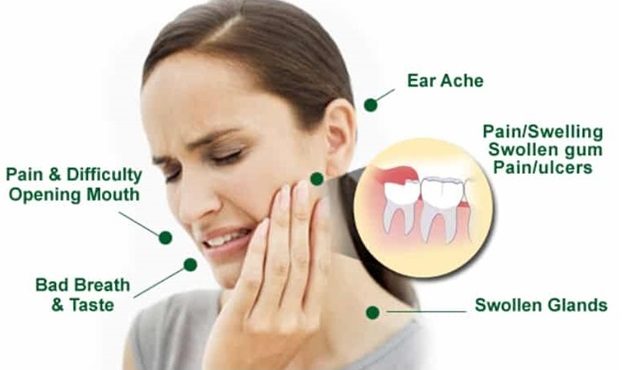
How To Choose A Dentist
Choosing a new dentist may be a bigger decision than it seems at first glance. A relationship with any healthcare provider is a high-trust venture. But dentistry’s unique. Most of the time spent with a dentist involves their hands in a very personal space: Your mouth. And you ‘re allowing them to complete treatment that’s often difficult for you to evaluate from a technical perspective. You also trust they’ll tell you exactly what you see and what they recommend. So, how to choose a dentist takes a little thought.
Dentists are highly-trained, licensed professionals with a background in many of the same fields as a physician. In fact, dentists generally complete a bachelor’s degree at a four-year university before being selected for dental school. Then they spend four more years in a rigorous classroom, laboratory, and clinical curriculum. A board exam, including treating live patients, allows them to obtain their dental license. Often they complete crowns, fillings, cleanings, and other procedures with strict evaluation by examiners on every step. New graduates often continue on to a General Practice Residency, specialty training, or other advanced education programs.
What Makes the Difference?
After all this background training, you expect that all dentists are capable practitioners. By and large, that’s true. But differences in personalities, interests, and specific skills can differentiate dentists over time. Most importantly, some dentists continue to add hundreds of hours of education to their annual training. Others choose to complete the bare minimum.
At the end of the day, the goal is to find a dentist you feel comfortable visiting. If you’re new to an area or you haven’t seen a dentist in awhile, that can be challenging.
Tips For Choosing the Right Dentist For You
Here are a few thoughts to consider when you’re looking for a dentist. Often you’ll use a combination of methods to end up in the right chair.
- Ask Around. Word-of-mouth is tried-and-true. It’s hard to beat the experiences of others, and your family or friends will usually be straightforward with you about their dental experiences.
- Check Reviews. These days, online reviews work whether you’re buying a toaster or choosing a dentist. You can check Yelp, Google, Healthgrades.com, and more.
- Check Facebook Pages and Websites. If you’ve heard about a dentist, go to their social media and scroll through it. Spend a little time on their website and meet the team, watch their videos, etc. You’ll get a feel for the practice.
- Use Online Services. Services like DentalChat maintain vast networks of dentists who are interested in seeing new patients. You can chat with dentists, ask questions, and inquire about appointments in your area on a secure platform. This is a good way to find a dentist to learn more about using the other methods above.
Regardless of the way you go about choosing a dentist, it’s important you find one that fits your style, comfort, budget, and trust. Remember, if you’re not satisfied with your first dentist, you can always try another one until you find the right fit!

Dental Implants Blog: Your Dental Implant Procedure Info
Not so long ago, you had very few options if you lost a tooth. Today, dental implants often give you the best opportunity to return to the normal chewing and an intact smile after tooth loss. As you consider the possibilities, a few questions usually come to mind. Of course, you realize the long-term benefits of the procedure, especially knowing that you’re going with an option that will make your life better every day for years. But you might be wondering about the near future of the process. Many patients ask the question, “What is the dental implant procedure like?”
Dental Implant Information and Dental Implants Blog: What is Dental Implants and Your Dental Implant Procedure Info online blog. Dental implants have become one of the best ways to fix a missing tooth or more in the mouth. In the last 20 years, more and more people are placing dental implants into the mouth. The dental implant is a screw-like product that is kind of screwed into the jaw bone. There is a lot of dental planning and expertise needed to have dental implants placed into the mouth.
Dental Planning Always Pays Off
Your comfort should be the most important part of every visit. We take every measure to make that central to your dental implant experience. If we need to include specialists in our plan, work with a provider who shares the same philosophy as the specialists they work with. If you prefer sedation, seek out an office that offers it. To ensure success, it’s vital that a personalized road map is created for your return to full dental function. The best practices now use digital imaging technology and other records to guide the entire process. Good planning pays dividends in life…and dentistry. Also, make sure to get a good Local Dentist Consult about what the dental treatment plan will include.
You’ll likely be surprised at the experience during the placement of a dental implant. The modern dental anesthetic numbs the area profoundly so that you don’t feel anything when dental implants are placed into the jaw, and with experienced dentists, hands start placing the implant. A mini-guide hole creates a path for a small implant cylinder to be carefully placed and slowly threaded into the site. A smooth cover is placed over the implant that remains in place during the healing period.
There are many temporization options that are possible so you can smile confidently from day one. In some cases, a temporary crown may be created and delivered that day. Since every patient’s procedure is different, your dentist will help you decide what will work best during the healing period. Within a short time, the sterile implant surface begins integrating into the bone. The healing period usually lasts from 3-6 months as the implant bonds within your jaw bone. Most patients experience very little discomfort after implant surgery, especially when compared to a tooth removal procedure.
A Perfect Finish
After 3-4 months of healing, a crown will be custom-made and attached to the implant with a small screw or dental cement. Your dentist chooses from a variety of components that allow an optimal result when completing the final stage. Customizing the process of your tooth replacement from planning to the final placement of your new tooth makes all the difference in the outcome. Choose a dentist with experience and advanced education in the exciting area of dental implant technology. That choice will ensure you experience the best of modern dentistry! Ask Dentist an Dentist Question or Post Your Dental Question with us at DentalChat.com. Ask Dentists Dental Implant Questions and more.
If you don’t have a dentist or you’re dealing with more dental questions about what to expect after tooth extraction, you’re in the right place. DentalChat provides the best platform to connect with licensed U.S.-based dentists. You can ask questions online and even connect with a nearby office that can help you with your needs. Feel free to jump on and see how we can help now or in the future!

Networking online with dental companies, best dental professionals and local dentists
More and more businesses and companies are networking – and partnering online. We at DentalChat are looking to be networking online with dental companies, best dental professionals and local dentists.
How is Dental Chat networking with local dentists? DentalChat.com has one of the top dental platforms, that connects dentists to new patients and also, helps in providing dental information to people interested in dentistry. DentalChat was founded by a dentist over a decade ago, to help people with their dental care. Now, we have a great team of dedicated professionals that are expanding and improving that vision.
Networking online with us at DentalChat: If you are a dental company, ad media company, web tech company, social media blogger, dental professional or local dentist – now, is a great time to be networking online with us at DentalChat. Dental Chat online with great local dentists and dental practices. We are at DentalChat using smart technology and local dental professionals, to provide our users with great insight and knowledge about various Local Dentist Questions Online people have.
What dental subjects are covered on DentalChat? We cover most dental subjects and dental topics on DentalChat.com. We get asked many local dental questions about toothache or are asked many local dental questions about dental implants. Want more local dental implant information – here is a link to a local dental implants information blog on DentalChat.com. We also get asked many Local Emergency Dentist Questions online with us.
Excellent time and opportunity for local dental companies and local dentists to network – and to partner online with us @ DentalChat. We have many Local Dentist Blog articles and dentists can write local dental blogs online for us as well.

Do Wisdom Teeth Need To Be Removed? Here’s A Look
Growth brings along a lot of questions, including “Do wisdom teeth need to be removed?” The answer isn’t always as straightforward as it seems.
A normal adult mouth has 32 teeth, which (except for wisdom teeth) have erupted into place by about age 13. The human teeth function to mechanically break down items of food by cutting and crushing them in preparation for swallowing and digesting. Humans have four types of teeth: Incisors, canines, premolars, and molars. The incisors cut the food, the canines tear the food, and the molars and premolars crush the food.
The roots of teeth are embedded in the maxilla (upper jaw) or the mandible (lower jaw) and are covered by gums. Teeth are made of multiple tissues of varying density and hardness the third and final set of molars that most people get in their late teens or early twenties are called wisdom teeth.
Are They Worth Having?
These teeth can be a valuable asset to the mouth if they’re healthy and properly aligned. But more often, they are misaligned and require removal. There are certain myths related to wisdom teeth in Asia that is a person’s intelligence is completed once a person’s wisdom teeth are present. However, science has never proven such myths! A person whose wisdom tooth is coming to surface may not have any symptoms. On the other hand, they may have severe pain and difficulty eating and talking.
When wisdom teeth are misaligned, they may be positioned at various angles in the jaw. Poor alignment of wisdom teeth can crowd or damage adjacent teeth, the jawbone, or nerves. Wisdom teeth can also be impacted if they are enclosed within the soft tissue and/or the jawbone or only partially break through or erupt through the gum. Partial eruption of the wisdom teeth allows an opening for bacteria to enter around the tooth and cause an infection, which results in pain, swelling, jaw stiffness, or difficult breathing.
Do Wisdom Teeth Need To Be Removed? Maybe Not?
Dental experts don’t always agree that wisdom teeth need to be removed. Some suggest they should be left unless they’re causing problems and pain. However, others suggest taking them out because they only present risks, not benefits. The decision should come from you and your dentist collaborative discussion. If they’re causing significant pain or damage to neighboring teeth, they need to go.
There are still many unanswered questions about wisdom teeth. This is one of the reasons why even the experts don’t always agree what to do about them. Some dentists recommend removing wisdom teeth no matter what, even if they aren’t causing any problems. This perspective is based on the fact that wisdom teeth will usually end up causing problems in the long run.
Another argument is that we simply no longer need wisdom teeth to function. Wisdom teeth often do not come in or they only partially break through the gum. Up to 80% of young people in Europe have at least one wisdom tooth that hasn’t broken through. This is more common in the lower jaw than it is in the upper jaw. The reason is usually that there isn’t enough room in the jaw.
Time Brings Changes
Evolution has made adjustments to our jawbone size throughout human history. The jaws of modern human beings are smaller when compared to their ancestors. This presents a range of problems when wisdom teeth try to erupt into place. They often become blocked by other teeth and grow inside the jaw.
If the wisdom tooth erupts partially, it tends to create hard to reach area where bacteria can accumulate resulting in severe infections of the surrounding tissues and gums.
When wisdom teeth remain fully impacted under the gum line, they may form cyst or tumor that can damage the jawbone and teeth if left unaddressed. Hence most people undergo wisdom teeth removal to prevent themselves from the potential problems which may arise.
- Local Emergency Dental Chat Online:
Great time to network and market online with us. Local Emergency Dental Chat Online and Search for Local Dentists online with us @ DentalChat.com. We welcome guest dental bloggers on DentalChat.
- Find a Dentist – Connect with Local Dentists in your area:
Are you looking to Find a Dentist in your area? At DentalChat, we can help with that! DentalChat.com connects you in real-time with dentists in your area.
